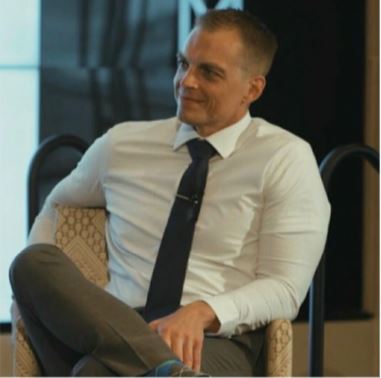“Dad, are we there yet?” These five words in combination may be the bane of every parent’s existence. Driving to Florida for a vacation with my wife and three young children, I knew the question was coming. I waited in dread and anticipation wondering which of my children would ask the question first and when.
As frustrating as the question might be, I’ve come to think of it as more than an annoyance in the car. It is the product of something more problematic because the question assumes that the journey…the time spent together on the road…is an obstacle to the real goal of arriving at some destination. The question transforms the time spent on the journey into something less-than-desirable…into time wasted rather than time wisely spent.
What if instead of asking “are we there yet?” we asked, “how can we best enjoy one another on this 13-hour drive?” I don’t think the latter question would eliminate tensions or make the crammed backseat more comfortable, but I do think it could help us remember that the journey is more than wasted time. It is an opportunity to be with one another.
The way we think and act in the world is rooted in the questions we ask ourselves. Whether we make our questions explicit or implicit, they frame the way we see the world. So, what might happen if we learned to ask more theological questions? How might we begin to see things in new, theological ways?
As I completed my recent book entitled Thinking Christian, I concluded with what I have come to believe is a crucial question for the community of faith:
How is it that we have, in the midst of our agendas, strategies, moral outrage, and legitimate concerns, fashioned God into a deity of our own making so that He looks increasingly like us rather than us being transformed to look increasingly like Him?
It isn’t the only question I think Christians should be asking (I outline several others in my essay entitled “Cultivating a Christian Mind”), but it is one that has continually come to mind of late. It is a question that I hope we, as the body of Christ, can ask more often and spend more time considering.
If questions really are important framers and re-framers of reality, it is important that Christians strive to ask theological questions…questions that reinforce our Christian identity and remind us that our purpose is to enjoy God and glorify Him forever. What might such questions look like? I’ll offer a few thoughts:
- Try to avoid “yes” and “no” questions– While I would advocate for avoiding yes/no questions altogether, it seems to me that we too often limit our capacity for deeper thought by looking at the world as either “black” or “white.” Ask questions that will help to adjust a position rather than eliminate it altogether. For instance, you might ask, “in what ways might we promote unity in the church?” instead of asking “have we promoted unity in the church?” It’s a subtle difference, but an important one.
- Don’t get stuck on questions about a single factor– It can be easy to go straight at a problem. When you are gaining weight, it’s easy to go to diet and exercise…but that isn’t the only factor. When I couldn’t lose weight despite eating pretty well and exercising regularly, one thing I learned is that age plays a role in weight loss. As I had gotten older, my caloric needs had declined. So eating reasonably at 30 was (sadly) overeating at 40. Look around corners, find new avenues for inquiry, and don’t get obsessed with one question.
- “Outdo one another in showing honor” (Rom 12:10)– Make sure your questions honor the various members of the body of Christ. I’m concerned that we’ve lost the art of honoring one another. In part, it seems we have accepted a mentality in which someone has to be the bad guy. Actions have (and should have) consequences, yet those who believe in Christ have all been saved from the consequence of our actions. That fact should cultivate within us a healthy measure of grace. We need to take care that even as we engage in accountability, confrontation, and discipline that we also show honor to those who have made ungodly choices despite being made in God’s image.
Perhaps the key to asking theological questions is knowing God more deeply…not knowing facts about God, but knowing Him. As we come to know God more deeply, I believe we will only be more motivated to ask questions about Him.
Lord, let us be a curious people unsatisfied with our knowledge of who you are. Help us to ask questions that will guide us closer to you. Amen.
Featured Image by Evan Dennis on Unsplash



















